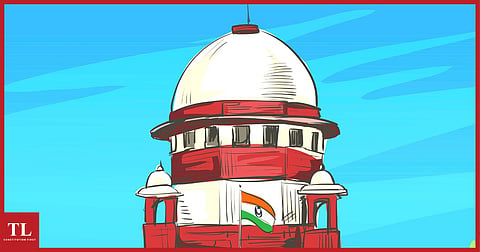

A THREE judge bench of the Supreme Court in the recent judgment of 'Jayamma & Anr. v/s. State of Karnataka', discussed in detail, the significance of a Dying Declaration as the solitary piece of evidence in a murder trial.
The Court was adjudicating an appeal against an order of reversal of acquittal by the High Court of Karnataka. The basis of reversal of acquittal was the dying declaration of the victim, corroborated by the statement of the police officer and the doctor, in whose presence it was recorded.
The Supreme Court, while reversing the order of the High Court, disbelieved the dying declaration on the grounds that :
The judgment in Jayamma as referred to above is a significant one, since it clarifies the evidentiary value of a dying declaration, and the sustenance of conviction solely based thereupon. The Court held as follows –
"When the dying declaration has been recorded in accordance with law, and it gives a cogent and plausible explanation of the occurrence, the Court can rely upon it as the solitary piece of evidence to convict the accused."
"It is for this reason that Section 32 of the Evidence Act, 1872 is an exception to the general rule against the admissibility of hearsay evidence and its Clause (1) makes the statement of the decease admissible. Such statement, classified as a "dying declaration" is made by a person as to the cause of his death or as to the injuries which culminated to his death or the circumstances under which injuries were inflicted. A dying declaration is thus admitted in evidence on the premise that the anticipation of brewing death breeds the same human feelings as that of a conscientious and guiltless person under oath. It is a statement comprising of last words of a person before his death which are presumed to be truthful, and not infected by any motive or malice. The dying declaration is therefore admissible in evidence on the principle of necessity as there is very little hope of survival of the maker, and if found reliable, it can certainly form the basis for conviction."
Landmark Judgments relied upon by the Court:
| Citation/ Judgment | Issue | Held | Relevant Paras |
| P.V. Radhakrishna. v. State of Karnataka (2003) 6 SCC 443 | Percentage of Burns, whether determinative factor? | Percentage of burns alone would not determine the probability or otherwise of making the dying declaration. The following are some of the determining factors:
| Para 16 |
| Chacko v. State of Kerala (2003) 1 SCC 112 | Factors which makes the Dying Declaration doubtful | Factors which raise questions on the genuineness of a Dying Declaration:
| Para 3 |
| Sampat Babso Kale and Anr. v. State of Maharashtra (2019) 4 SCC 739 | Whether higher percentage of burns affect the credibility of dying declaration.
|
| Para 14, 15, 16 |
| Sham Shankar Kankaria v. State of Maharashtra (2006) 13 SCC 165 | Dying Declaration as the sole piece for Conviction | Factors which the Court must consider while relying upon a dying declaration for a sole piece for conviction –
| Para 11 |
| Surinder Kumar v. State of Haryana (2011) 10 SCC 173 | Dying Declaration as the basis of conviction, even without corroboration | No impediment to make dying declaration as sole basis of conviction if –
| Para 14, 17, 19, 26, 28 |
(Prastut Dalvi is an advocate in the Supreme Court. The views expressed are personal.)